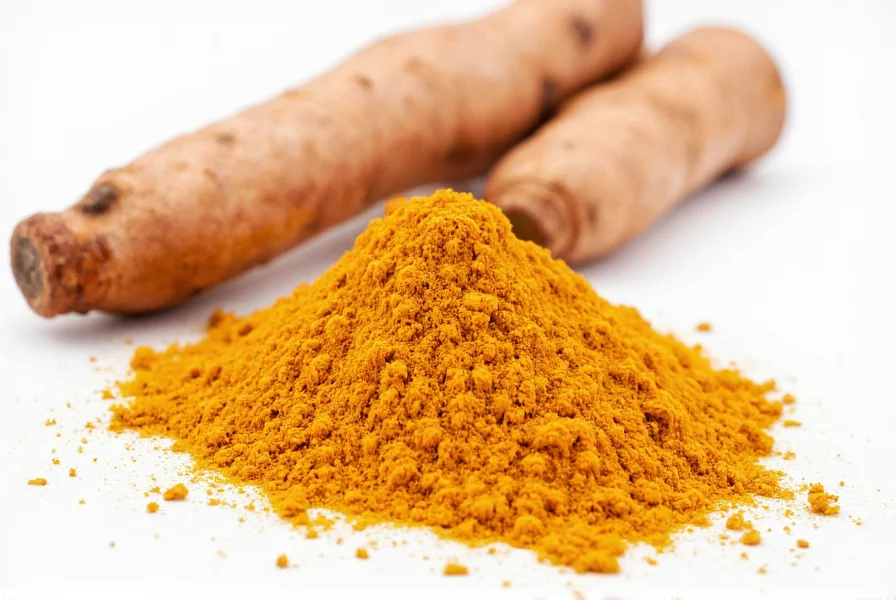Curcumin, the active compound in turmeric, has gained widespread popularity for its potential anti-inflammatory and antioxidant benefits. While many people safely incorporate turmeric into their diets as a spice, concentrated curcumin supplements present different considerations. Understanding the potential side effects of turmeric curcumin is essential for making informed decisions about supplementation.
Common Mild Side Effects of Turmeric Curcumin
Most people tolerate turmeric well when used as a culinary spice, but higher-dose curcumin supplements can cause mild digestive discomfort. Research indicates that approximately 7-10% of supplement users experience gastrointestinal symptoms. These typically include:
- Nausea or stomach upset, particularly when taken on an empty stomach
- Diarrhea or loose stools at higher doses (typically above 1,000 mg daily)
- Gas and bloating in sensitive individuals
- Heartburn or acid reflux symptoms
These mild adverse reactions to curcumin usually resolve when reducing the dosage or taking supplements with food. Studies suggest that dividing daily doses and consuming them with meals significantly reduces gastrointestinal side effects of turmeric supplements.
Serious Potential Side Effects and Health Concerns
While rare, certain serious side effects of turmeric curcumin warrant attention, particularly with long-term high-dose supplementation:
Bleeding Risk and Blood Thinning Effects
Curcumin may inhibit platelet aggregation, potentially increasing bleeding risk. This is especially relevant for:
- Individuals taking anticoagulant medications like warfarin
- Those with bleeding disorders such as hemophilia
- People scheduled for surgery (typically advised to stop supplements 2 weeks prior)
Gallbladder Complications
Curcumin stimulates bile production, which can exacerbate conditions for people with:
- Gallstones
- Bile duct obstruction
- History of gallbladder disease
| Population Group | Special Considerations | Recommended Action |
|---|---|---|
| Pregnant or breastfeeding women | Limited safety data for supplement doses | Avoid therapeutic doses; culinary use generally safe |
| Diabetes patients | May enhance blood sugar-lowering effects | Monitor blood glucose closely when combining with medications |
| Iron-deficient individuals | May interfere with iron absorption | Take supplements several hours apart from iron sources |
Dosage Considerations for Safe Curcumin Use
The relationship between curcumin dosage and side effects follows a clear pattern. Most clinical studies use doses ranging from 500-2,000 mg of curcumin daily. Key considerations include:
- Standardized extracts: Products containing 95% curcuminoids deliver more active compound per dose
- Bioavailability enhancers: Piperine (black pepper extract) increases absorption but may intensify side effects
- Long-term use: Limited data exists on effects of continuous high-dose supplementation beyond 6-12 months
Research suggests that doses below 8 grams daily are generally well-tolerated in the short term, but practical supplement doses rarely exceed 2,000 mg due to diminishing returns and increased side effect risk. Understanding proper curcumin dosage for your specific health goals can significantly reduce the likelihood of experiencing adverse reactions to curcumin.
Medication Interactions to Consider
Curcumin's potential side effects become more significant when combined with certain medications. Documented interactions include:
- Blood thinners: May enhance effects of warfarin, clopidogrel, and aspirin
- Diabetes medications: May amplify blood sugar-lowering effects
- Chemotherapy drugs: Theoretical concerns about interference with certain treatments
- Drugs metabolized by CYP3A4: Curcumin may affect metabolism of numerous prescription medications
Anyone taking prescription medications should consult their healthcare provider before starting curcumin supplements to avoid potentially dangerous interactions between turmeric and medications.
Turmeric Spice vs. Curcumin Supplements: Different Risk Profiles
It's crucial to distinguish between culinary turmeric and concentrated supplements when evaluating side effect risks:
- Turmeric as a spice: Contains only 2-8% curcumin by weight; culinary use (1-3 grams daily) rarely causes issues
- Curcumin supplements: Typically contain 400-2,000 mg of concentrated curcumin, increasing side effect potential
- Long-term safety: Limited evidence exists for high-dose supplement safety beyond 6-12 months
Most documented side effects of turmeric curcumin relate to supplement use rather than dietary consumption. The concentrated nature of supplements explains why potential side effects of turmeric supplements differ significantly from culinary use.
When to Consult a Healthcare Provider
Seek medical advice before using curcumin supplements if you:
- Have a bleeding disorder or take blood-thinning medications
- Have gallbladder disease or a history of gallstones
- Are pregnant or breastfeeding
- Have diabetes and take medication to control blood sugar
- Are scheduled for surgery within the next two weeks
Stop using curcumin supplements and contact a healthcare provider immediately if you experience signs of an allergic reaction (hives, difficulty breathing, swelling) or symptoms of severe gastrointestinal distress.
Conclusion: Balancing Benefits and Risks
While turmeric curcumin offers potential health benefits, understanding the complete picture of curcumin supplement safety is essential. Most people can safely enjoy turmeric as a spice, but concentrated supplements require more consideration. Starting with lower doses, taking supplements with food, and consulting healthcare providers about potential interactions represent prudent approaches to minimizing side effects of turmeric curcumin supplements. As with any supplement, individual responses vary, making personal awareness and professional guidance valuable components of safe usage.











 浙公网安备
33010002000092号
浙公网安备
33010002000092号 浙B2-20120091-4
浙B2-20120091-4